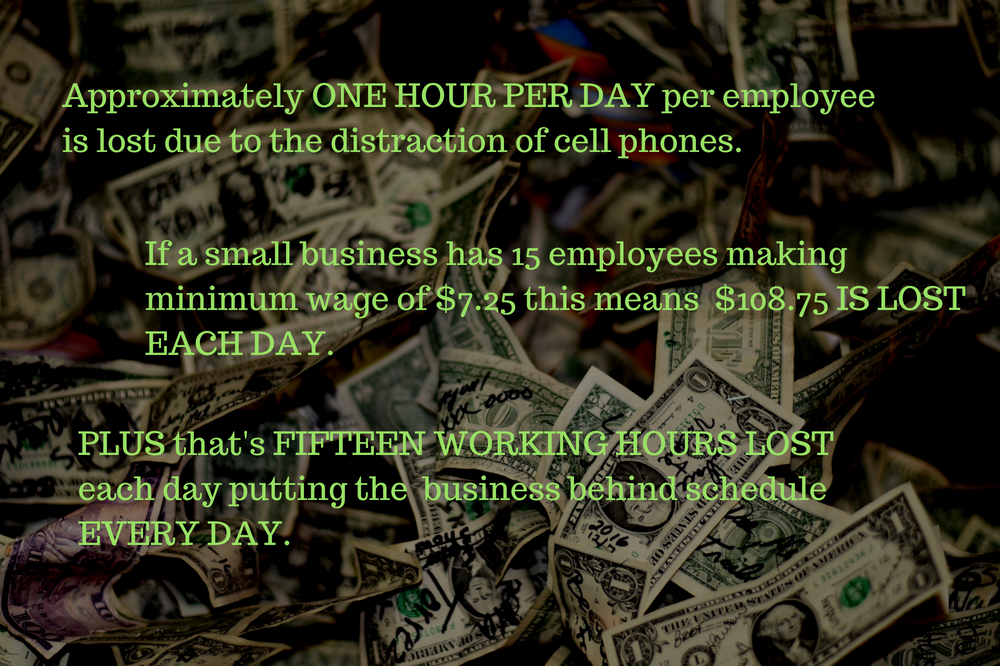Private Behind the Scenes Interview with Eben Pagan Reveals…
How to Create a Future-Proof Business in the New Economy
I loved doing this interview with Eben. It’s awesome and speaking to someone of his caliber is refreshing because he “gets it”…big time.
Which is probably why he has been able to sell well over $100,000,000 in products and coaching online in a wide variety of markets.
So if you’re serious about building a long-term coaching business online (yes, it may not be all roses all the time – but it’s something that we both believe is future-proof) then you owe it to yourself to learn more about his Virtual coach program.
Start by checking out this video of the ‘coaches secret’.
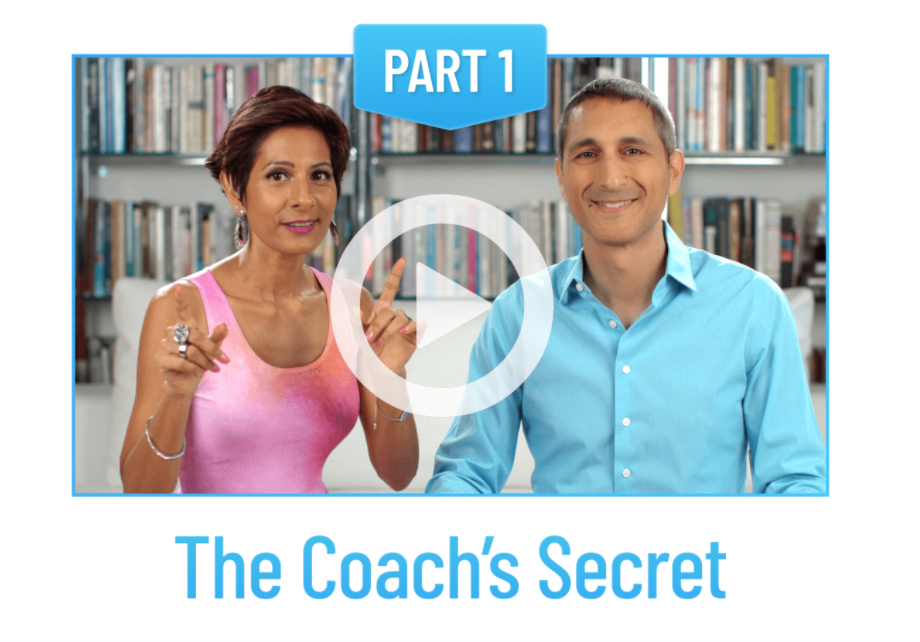
===> Watch the Coach’s Secret Here <===
Interview Transcript
Ryan Coisson: Hey everybody, this is Ryan Coisson, thanks so much for checking out this interview. I am just so excited to have an opportunity to talk to someone that I’ve been following behind the scenes for well over a decade now, his name is Eben Pagan, and one of the things that has always fascinated me about Eben is he is someone who has really done an amazing job at positioning and standing apart from the rest of the crowd. He’s built many, many different businesses, but these days he’s a father, he’s an investor, he’s an art collector, he loves to travel, like myself, and I’m just so excited to have the opportunity to share some of the insights that I’ve learned with him over the years, and kind of grill him a bit about some of these really important topics with the new economy. We’re going to be specifically talking about creating a future-proof business in the new economy, so Eben, thanks so much for hanging out with me here for a few moments and sharing your wisdom.
Eben Pagan: Yeah, it’s great to be here Ryan, thanks for having me.
Ryan Coisson: Yeah, of course. Well, I just want to give folks real quick a little context, because I started following you years and years ago, and it was when you started to talk and make this transition into kind of educating folks about what you were doing with your primary business, and back then it was a business in the dating world, but what really stood out to me, Eben, was kind of your understanding and the concepts that you had that were vastly different from other folks, and one of those came down to positioning, but more importantly the concept that really stood in my mind when I started to think back was this idea of moving the free line. I’m curious, just kind of starting out, as you made your way into this world and building a business online, where did you start to understand the difference of really making yourself set apart from other folks?
Eben Pagan: Well, when I started studying marketing, I learned some important lessons. Marketing taught me that it doesn’t matter how much you want to be successful, or doesn’t matter how much you love your customers, it doesn’t matter how much you love your product, what matters is communicating with people in a way that causes them to take action. If they’re not motivated to come and buy your product, they can love you and you can love them, and you can be putting all of your time, effort and energy in, you can mortgage your house and take all the money and invest it in your next design, you can do all these things, and you can still wind up with a business that doesn’t work out.
Eben Pagan: And by learning direct marketing, I learned this more pragmatic or empirical way of looking at things, which shows you that you have to get results. That’s what you have to do, you have to get out there and you have to get results, and I don’t… I guess sometimes I do think about differentiating myself, I do think about that sometimes, but I think more in terms of just really almost relentlessly trying to figure out what the customers want.
Eben Pagan: You know, what people really want, what they want to know, what they want to learn, what they want to buy, what their needs are, what they fear, what they desire, and I’ve found that by really diving deep into those things, by asking lots of questions, by being curious and by actually being legitimately interested, really being fascinated by the needs of my customer, I can always find something that is like a big insight or breakthrough, and then when I create marketing, or products or services, or coaching, or whatever I’m creating for them, it kind of stands out by itself because I was the one that took the time to be interested enough to understand what their motives really were, and then to create product or service that really was a good fit for it. Yeah, and then that kind of differentiates you all by itself I think.
Ryan Coisson: Yeah, that makes total sense, and I agree, it really helps you to set yourself apart by actually understanding the true needs of the customers, not maybe what you think they want, or sometimes even what they initially might want on the surface, but you’re speaking to more of a… Almost like a deeper meaning that they’re after. And I’m curious, one of the things that I think really helps with that is the research process, the digging in, the understanding of that, and I’ve always found that there’s sort of this great debate, do you follow the money or do you follow your passion, and providing value within those different kind of aspects of it.
Ryan Coisson: It’s always been easier for me to follow the passion, because I then understand the actual need of the person much, much greater because it’s something that generally I have had, and I know that you have kind of gone down that route first as well when you first got started, but do you feel that’s necessary in kind of this day and age, or do you feel it’s better for folks to follow the money?
Eben Pagan: Well, it depends on where you are in your life, but generally I like to look at… I like to look at career and work and entrepreneurship, I like to think more long-term if possible, and what I mean by that is you want to do things that you’re not going to abandon and then have invested a year or two or five years, and then you abandon all that work and you have to start over. I like to do things where you can build. I sometimes joke that… Jay Abraham says, “Big mistake is to find something that works and stop doing it.” I’m actually pretty good at that, that’s like a hallmark for me, is I start a business, I get it growing and I… It gets working, and then I [inaudible 00:05:51], “Okay, I learned how to do that,” and then I go learn something else.
Eben Pagan: But there’s another side to it, another side to it too, where I do synthesize and I combine, and kind of take these different things I’ve learned and have them collaborate in my mind and kind of synergize, and so the… I think the answer to your question is I think that you have to follow the things that you’re passionate about that also are things that your customers are passionate about. This will create a structure that will motivate you long-term, because if you do things that you’re interested in, that you actually find interesting in your life, then you will keep at them.
Eben Pagan: I’ve got a little daughter right now and she’s six, and she’s learning how to read. I mean, she’s been learning how to read for a while, but she’s really into reading and she picks up books, and we’re trying to help her become not in a relationship with books where she’s doing them for some reward, where there’s an intrinsic motivator, and we sit together and we all have family read time where we sit in our bed and the three of us get a book and we read, because we want our daughter to see us reading and we want to see her reading, and making this kind of something that lasts for the long term.
Eben Pagan: And so if you want to be sustainable and you want to do something that really is going to… You’re going to wake up in 10 or 20 years and be really glad you did it, I think you have to have some passion involved in it. I meet entrepreneurs… I know I’m kind of going on here, but I meet entrepreneurs a lot who are just opportunists, okay? And as you know, I like the concept of opportunity, I wrote a book about it, but I meet entrepreneurs… I met some today in fact, who you can see they’re just focused on the opportunity, they can see there’s a place where they can make money, maybe they can build a business, make some profit, flip it. That isn’t that interesting to me. It doesn’t have that… What Steve Jobs called like… You’re not going to be making products that have that spirit of enlightenment, where they feel like… Where you feel grateful to the person that made it, and where they really make the world a better place, if that’s where you’re coming from.
Ryan Coisson: Right, and I think that kind of idea is also fleeting in that you start to lose this equity that you’re building with the customers when they can clearly tell that maybe you don’t have the passion for it, or the product is not world class as it should be, you’re starting to erode your ability to have that trust with them that you’re providing great quality products. And I feel like you’re someone who over more than a decade now, you have been able to continually build that sort of customer equity, that trust, that value, based on what you actually put out there and the results that it gets folks, so again going back to sort of that longevity, you can seek the shorter-term opportunity, but if you play that long game, in my opinion, and I’m assuming you’re on the same page, it makes everything else so much easier for you to the extent that if you start to offer new programs, coaching, et cetera, it really becomes a no-brainer, because you earn the trust of having that sort of super fan.
Eben Pagan: Yeah.
Ryan Coisson: [crosstalk 00:08:59] would you agree with that?
Eben Pagan: Yeah, yeah, I do. And what most entrepreneurs don’t do is they don’t… They don’t fall in love with their customers, they don’t fall in love with what they’re doing, they don’t do it in a way where you, when you look at their products, when you look at their services, when you have an experience with them, where you say, “God, I just… I love being around this person because they’re so enthusiastic, they really love what they’re doing.”
Ryan Coisson: Right, right. And it’s interesting, kind of falling in love with your customers, in the online world they can just seem like someone that isn’t real, right? But I love to do some coaching, and I love to actually do some calls that are sort of random sometimes with my customers, and we’re going to talk more about coaching here in a moment, but one of the reasons I love it is I love doing a little video chat with them, I was literally doing one right before this, and that person becomes so real to me.
Ryan Coisson: Now I see their face, I see where they’re living, I get to talk with them, understand the problems they’re having, understand the successes they’re having, and it becomes so abundantly clear to me that I’m working with real people who are dealing with these types of issues, or seeking this type of result, and it just ignites me to provide even more value, to make a better impact, and something that’s more usable, which of course is what we’re all I think after, at the end of the day.
Eben Pagan: Yeah, yeah, agreed.
Ryan Coisson: So I want to talk to you, before we kind of dive deeper into coaching, is… You know, have this kind of concept of creating the perfect business and doing something that has longevity, and you mentioned your book Opportunity, I’ve got my copy here. As you guys can see, I’ve got it all marked up with Post-it Notes, that’s how I like to take notes on things so I can easily reference back to it. But one of the things that I’ve always felt was a missing opportunity for a lot of folks comes with naming. You’ve done an amazing job at studying the ability to name products that not only sort of encapsulate the idea, but also the vision of what you’re hoping to accomplish for that individual, and I remember the first time I heard about your product which was in the dating space, Double Your Dating.
Ryan Coisson: I thought it was just kind of fascinating, you went on to create other products of Altitude, and many other products in the productivity space like Wake Up Productive, and can we talk a little bit about kind of your history in studying how to actually create a good, strong name for your product that helps do a lot of that heavy lifting for you?
Eben Pagan: Sure. Yeah, the name is probably the most important marketing that you’ll do for your business or for your product, and this is because the way human minds work is we associate things to each other, and we use representations to kind of represent things to… To kind of have placeholders in our mind to connect up meaning, and because there’s so much information going through our minds all the time, and so much coming through our experiences, we have to figure out a way to stand out. We can’t just drop into that flow of the matrix of numbers that people are living in, just be another number, we have to stick in some way.
Eben Pagan: And so I’m really interested in the use of icons and visuals, and words, and sounds, and all of these things. I’m a musician, and I never went anywhere as a guitar player, but I’m really interested in… So over in music, they have what are called hooks, right? So a little catchy melody that once you hear it, you kind of can’t get it out of your head. You ever listen to a song and you can’t stop thinking about it, right?
Ryan Coisson: Yeah, [crosstalk 00:12:54]-
Eben Pagan: You can’t stop singing it to yourself, right? Well, over on the words side of things, you can put together combinations of words that have the same effect where they bounce around in the mind of a person, and they’re very memorable, they’re very hard to forget. You can also use icons and symbols, and other combinations of these things, so that the pictures stick in the mind as well, like you just… You had that book Opportunity right there, can you just hold that up again for a sec? Right, so notice what it is, right? It’s a hand grabbing a lightning bolt, and I did that cover with the amazing artist Android Jones, and I was telling him about the book, and he started drawing and this image came to him, right?
Eben Pagan: This was his idea, because I was talking about how opportunity is exciting, but it’s also a little bit dangerous, he said, “Hand grabbing lightning bolt.” And it was like, “Yes, that really captures the spirit of it,” right? And the word “Opportunity” is just a word that everybody loves when it comes when it comes to opportunity, when it comes to finding it, you know? So naming is a big deal, okay? So the frame is what you name things is a big deal, there’s a way to name things in such a way that the name sticks in the mind of your customer, that they remember it, and even that you become the label on the category inside of their mind.
Eben Pagan: A lot of this I learned from Al Ries and Jack Trout, who originally wrote the book Positioning, and from them and some of these other great teachers I’ve learned that for example, if you have a repetitive sound, it’s much more memorable. Something happens where when a person hears a sound that sounds consistent or repeated, it bounces around in the phonological loop, and so this is typically alliterations or rhymes. So if you have the first letter be the same of multiple words, like Double Your Dating, “DD,” or a rhyme like YouTube, or you can have alliteration and rhyme in Coca-Cola, which is one of the most powerful names ever, one of the greatest names ever, because it also has this rhythm, “Duh duh duh duh duh duh duh, Coca-Cola,” right?
Eben Pagan: For example, when I made Double Your Dating, I knew this, and when I first wrote the book it was called something like, How to be More Successful with Women in Dating or something like that, and then I said, “Okay, I need a better name here,” and I started thinking about these combinations and I came up with Double Your Dating because it was something that a guy could relate to. Anybody would like to… Who’s socially awkward and so forth, they liked Double Your Dating. People used to say, “Yes, but what if they have zero dates?” And that’s a different problem, right?
Eben Pagan: But Double Your Dating, and then I also picked a pen name that I used back then when I wrote these books, because my name, Eben Pagan, I thought it was a strange name and nobody would be able to relate to it, and so I was writing this book, I was 31, and I thought, “Okay, I need a better name, I just need a normal name,” and so I came up with the name David DeAngelo, which was kind of regular guy, but also had this… There was something a little unusual about it.
Ryan Coisson: [crosstalk 00:16:02]-
Eben Pagan: But it’s all “D”s, Double Your Dating, David DeAngelo. And it’s so interesting, I never thought like, “People are going to think that that’s this cool thing later on,” but it keeps coming up over and over and over when people realize that there was a strategy there, that “Wow, there was something going on there,” then it means something different.
Ryan Coisson: Well yeah, I think that’s part of my whole point in that you are someone that takes the time to actually step back and think about that strategy. We see too many folks these days, it’s so easy now to start an online business, it’s so easy to go out there and start to create something, that people are too focused on, I think, doing things quickly instead of just taking a few moments to step back and come up with the right strategy, and the name in and of itself is so important, and just… I don’t know how long it took you to craft that name together, but taking the time to sit down and actually think about these types of things I think is very, very important when longevity is in mind. We’re not just after creating something that we can take advantage of quickly, where “Oh, bitcoin is at new highs, let’s create a product around it and try and leverage something,” you know? We’re after the long term.
Eben Pagan: Yeah, the name that I’m most proud of coming up with is my daughter’s name. My daughter’s name is Love, L-O-V-E, and I reasoned that your name is the most important word you’re going to have in your life, because it’s the word you’re going to hear the most, it’s the word that’s going to be… You’re going to associate with your identity, and I thought about it and I was like, “Huh,” and I realized most people don’t really think about the name of their child so much.
Eben Pagan: I remember when I told my wife, who’s a love coach in fact, that I think we should name our daughter Love, she was like, “That’s lame, that’s cheesy, no way, we can’t do that.” But we kept talking about it, I was like, “But honey, you know if there was one thing you had to remember in your life to get you through the most situations successfully, and you can only have one word as your talisman to move through this adventure of being a mortal human, what would it be?” And it’s love, I think. You know, if you just remembered “Love,” and so I thought that was a pretty good affirmation to be going through life with having everyone say, and… Yeah, so yeah, yeah. Yeah, think about names, they really matter.
Ryan Coisson: Yeah, they do matter, and to go back to that concept and idea of you learning sort of direct marketing, I think one of the things that is so interesting about direct marketing to me is it’s really designed to help trigger sort of emotional responses and help people make decisions, and really kind of get into their psyche, and there’s a lot of people that talk about kind of trigger words or power words. When it comes to naming, you’re not so much utilizing, I guess, words that trigger maybe direct emotional response, or maybe a power word, but more something that is creating an image in their mind, can you maybe talk a little bit about that? Specifically one that I think is interesting is as you started to make your transition into sort of the business education space was “Altitude.” It’s like when I think of “Altitude,” it puts a picture in my mind, and it’s just one word. I thought that was always so interesting.
Eben Pagan: Yeah, yeah. Yeah, that was a pretty good one. I’ve even been thinking of going back and maybe using that some more as part of the name of our… A business or something. Marketing is such a fascinating puzzle, you know? One of the things that I like to say is that every marketing project is an ethical dilemma, and the reason why it’s an ethical dilemma is because you have to decide how hard to pitch, like how hard to sell, and you have to… If you’re empathizing with your customers and you’re really trying to tune into where they are, you realize that if you sell too hard, you’re going to potentially hurt people, you’re going to mislead them, and marketing is well-known, advertising and marketing, for misleading a lot of people, and it… You know, it can go into propaganda and deception and all this kind of thing, and so… Let’s see, I lost my train of thought, what was the question again?
Ryan Coisson: Yeah, so we’re just kind of talking about trigger words and [crosstalk 00:20:34]-
Eben Pagan: Oh yeah, yeah.
Ryan Coisson: [crosstalk 00:20:34] response for [crosstalk 00:20:35] that picture in someone’s mind.
Eben Pagan: When I teach marketing, one of the things that I have people do is make a list of all the fears and frustrations of their customers, and then all the wants and aspirations. So you want to know what they’re moving toward and what they’re moving away from, what they desire and what they fear. And so you write all these things down, and you really try to imagine what it’s like to be a customer to get to this list, and then you go back through the list and you ask, what are the words and phrases that they use to describe these things, and then what are the words and phrases that are the most emotionally-loaded words?
Eben Pagan: And so sometimes when I teach it I say, “There’s such a thing as a $100 word and there’s such a thing as a $1 word.” If I’ve got a $1 bill and a $100 bill here and I hold them up and I say, “What’s the difference?” You’re going to say, “Well, you know, not too much, except that one says ‘one’ and one says ‘100.’” They cost the same amount, they’re made with the same materials, they’re… So why is one of them worth $100 and one of them worth $1, right? And it has to do with meaning, and it has to do with what we ascribe to it. Well, it’s the same thing with words. If I say to you, “Which one of these words has a more powerful emotional element to it, fish or shark?”
Ryan Coisson: Right, shark.
Eben Pagan: Right? Clearly, or car or Ferrari?
Ryan Coisson: Yeah, yeah, Ferrari.
Eben Pagan: Right, they’re these words, and so if I’m going to write a headline and I want to grab someone’s attention, if I write “Fish” as a big word on the page, it’s like nobody’s going to care, but if I write “Shark” and I’ve got the jaws of a shark coming out, I’m going to get a lot more attention. But then back to the ethical dilemma, which is do you really want to write “Shark” and put jaws coming out, and kind of re-traumatize every single person that sees your ad just so that you can get some sales?
Eben Pagan: And so part of the artistry of advertising is playing that game in a way that you can feel good about long-term, and of course there are people in the world who have no sense of empathy or conscience, and so that small fragment of the world is walking around and they don’t care whether they traumatize or scare people or whatever with their marketing, because they… It doesn’t register for them, and so you have to deal with that as well, because if you are being ethical, you’re always going to have to compete against people who are not, but there are long-term advantages to being ethical.
Ryan Coisson: And I think part of that, being ethical over the long term, you’re also building that trust like we talked about, some social capital and equity with the customers, and you just become synonymous with certain things, and I think of big luxury brands like Louis Vuitton or Hermes. Part of the reason that someone could say, “Oh, I have this Hermes bag” or “This Louis Vuitton thing” is that brand stands for something, and it stands for luxury in that space, and it’s above… You know, like say Hermes is above maybe Louis Vuitton as a status symbol, but they’ve been doing it for so long that they’ve built that kind of trust and that kind of equity within the space to command that, it’s not something that I guess happened overnight.
Eben Pagan: Yeah, yeah, yeah, exactly.
Ryan Coisson: One of the things I want to talk to, I want to kind of start digging deeper into the idea of coaching, and it’s been really interesting to me in that looking at where we’re at in the current economy, in the current situation that’s going on, we’re moving into 2020 here soon and there’s lots of things happening on a global scale. I mentioned right before we jumped on here that Hong Kong is talking about moving potentially into a recession due to what’s been going on with all of the riots there. The kind of new economy is forming, but certain types of businesses are really thriving, and as you kind of mentioned and you talk about, one of those businesses is coaching.
Ryan Coisson: And the coaching, consulting worlds have always been very, very popular, they’re growing quite strongly, and I believe personally that it is a future-proof business, and for a lot of folks it can be a really great opportunity. Now, I’m curious though from your perspective, from the guy that wrote the book Opportunity, why do you think kind of coaching is such an amazing opportunity right now?
Eben Pagan: Yeah. Well, there are kind of two perspectives on this. One is what’s happening in the world. Right now, we are going through an acceleration of change, that’s what’s happening right now. Things are changing faster and faster, and as technology and software and knowledge just distribute themselves and permeate everywhere, people are learning, they’re growing, we’ve got automation that’s happening, there’s just more change happening, and our lives are more complex. Because we’re now aware of self-help and personal development, and we know that we can work on our health and we can work on our relationships, and we can become more conscious, and we can mediate, and we can work on our money, and we can do better in all these places, everyone now is… Has become kind of more interested in how to be the best version of themselves that they can be.
Eben Pagan: Maslow came up with this idea of self-actualization and people are saying, “Yeah, I want to do that, I want to be self-actualized, I want to be a higher version of myself,” and so now we’re working on all these areas, but now that we’re aware of all these areas and they can be worked on… I mean, it wasn’t that long ago that you did… There was no awareness that you could eat healthier food, or that you could learn a way to interact with your partner that would make your relationship better, like most people, that wasn’t on their mind. Now that we know this, now there’s an endless amount of this stuff, and so we’re always in transitions in our lives now. There’s always a transition that’s going on somewhere. Either we’re getting into a relationship or out of a relationship, or we’re starting a family, or we’re getting a new job, or we’re moving, or… Now that we have these more rich lives, there’s always some change happening in one of them, so that’s one factor.
Eben Pagan: The other side of the coin is that we have less social support. Paradoxically, even though we’re more connected on the internet, it’s these virtual connections, so we have less friends, we have less time with our friends, less face-to-face, which actually is very deeply emotionally nourishing to us. And so we’ve got more change happening and we’ve got less support, and these two things intersect at coaching as far I’m concerned, right? That need right there, where we… We’re going through a change in our life, we look around and we say, “Wow, I don’t know what to do, I need some help here,” but we don’t have a friend who is available, who understands that, who knows how to support us, who’s sophisticated with these social tools, and so onto the scene comes the coach, and it’s rising and growing very rapidly.
Eben Pagan: I just did some research, just kind of like my superficial research, 100,000… Over 100,000 coaches right now, $17 billion a year, right? This is like, a real… This is a real thing, and I’m not talking about consulting here or any of the other things, we’re just talking about coaching, and… So we’re finding ourselves in these situations where we need help, we need support, and the professional coach is there to do it. They’re kind of the… Sometimes I call coaches “A professional friend,” because they’re a professional with the social aspect of friendship, but they also know how to help you get focused, help keep you on track, hold you accountable, help you get results.
Ryan Coisson: Yeah, I think that’s an interesting way of looking at it, because I think a coach… When I do coaching with folks, I think part of my job is to be gentle with them, but also bring lots of things to light and truly hold them accountable, because I find that in this day and age, especially with social media and kind of shiny objects and all these different types of things, people really struggle with holding themselves accountable to anything. Whether it’s just waking up at a certain time, or eating a certain type of diet, or going to the gym, it seems like more than ever we are… People are struggling with that accountability factor, and I think that’s something that stems too from kind of the emotional things, and I believe issues that are sort of happening with kind of how our technology has paradoxically, as you said, kind of made us less and less connected individually, versus kind of how we are kind of more from a global scale.
Eben Pagan: Yeah. There’s something called the Hawthorne effect. It’s a psychological kind of principle, and what’s interesting about this is we basically, we become better, more productive versions of ourselves when someone’s watching, by just being observed, it’s like an observer effect, sometimes they call it the observer effect, right? And so one of the things that makes coaching work so well, and this is outside of the coaching skills and actually giving care and attention, is just attending to the other person, just them knowing that someone is watching.
Eben Pagan: I mentioned my little baby daughter, she often will just be like, “Dada, watch.” And I have to stop what I’m doing and watch, because she’s going to do a somersault, or she’s going to do a piece… She’s going to write something down or something, and it… There’s something sacred about being observed, about having the attention of another living being on you, and yeah, coaching kind of harnesses some of that value.
Ryan Coisson: That made me laugh, because I can remember being a kid and being like, “Hey dad, watch my dive, watch my dive,” you know, as I go off the diving board, it’s like it’s almost part of this validation too, the like “Oh, and you did a great job” kind of thing, it’s very interesting concept. I think coaching, a lot of folks might have a specific idea of what coaching is, and maybe they’ve heard other folks talk about it. I think you kind of encapsulate coaching into a greater depth than what most individuals might consider, so can you kind of even define a little bit, when you talk about how you look at coaching and how coaches are sort of out there helping other people?
Eben Pagan: Sure. If we talk about professional coaches here, people that are life coaches, business coaches, let’s get into that category, coaches basically, they help you get results, they help you take action in life, they help you become a better version of yourself. I like a little bit more, I don’t know, awakened version of coaching, or a little more enlightened version of what it is, and so the way I define coaching is coaching is supporting another person through a transition in their life. Supporting them through a transition. Someone can just call somebody up and get a coaching session. You know, “Hey, will you jam with me or help me?” You know, “Give me some information.” But the kind of coaching that we teach, I recommend that people do at least three to six month packages with people so that they’re with the person through that whole transition.
Eben Pagan: Now, when the client shows up, they may not be interested in hiring coach for six months or 12 months, they think, “I just want a couple of coaching sessions to help me get myself on track,” and so part of the coach’s job is to turn that initial consultation into a package of coaching where they can support the person through a transition, and then if you can do that, then the person sees that value, then they can… Then they’ll want to go on and work with you potentially even for years, so that’s more the frame right there.
Eben Pagan: Now, another piece is when you’re coaching and when you’re doing it in the way that I think is the right way to do it, you’re offering support, but you’re only offering the minimum amount of support that you need to so that the client can do it themselves. Okay, so a distinction that I draw between coaching and consulting is a consultant comes in and usually does it for you, the coach comes in and supports you while you’re doing it so that you can learn the skill, right? You can get the growth, and you can walk away with the self esteem from it, and so with a coach…
Eben Pagan: With consults, typically what a consultant’s doing is trying to get a consulting gig and then expand that for the long term, whereas a coach wants to get a coaching relationship through a transition, maybe three months, six months, maybe 12 months, sometimes a little bit longer, but the coach is proud when the client stands up on their own and says, “I can do it.” That’s how we kind of define ourselves, that’s what our success looks like. If there’s a moment, I can tell a story about how I really figured out what coaching is.
Ryan Coisson: Yeah, please do.
Eben Pagan: And I’m talking about my daughter a lot here, we’ve been hanging out a lot, and I really love her. When she was two, our family, we went to London, and for the last few years here we’ve been traveling like seven or eight months a year, which has been kind of intense, but it’s been cool. Anyway, my wife has lived in different parts of the world and she said, “We have to travel more, you got to get out of the house,” so we went to London, she used to live there, and we stayed in an Airbnb apartment, and when we walked in, it had this huge flight of stairs, all wooden, and they were the shiny, slippery ones.
Eben Pagan: And you get up to the next level, and there was another flight of stairs with a twist on it, shiny, slippery ones, and my daughter, who was two at the time, had just turned two, was like… Loved these stairs, she just wanted to be on them, and I… We were blocking them and putting suitcases and trying to figure out what to do. And so back then I would wake up with her every morning and take care of her, and so we wake up that first morning and she’s just like, “Dada, I want to climb those stairs.” And I was horrified, I’m like, “No, you’re going to fall down and break your neck.” And then I saw how serious she was about it and I realized, “Okay, she hasn’t really learned to climb stairs,” so I said, “Okay, let’s go learn to climb stairs.”
Eben Pagan: And when we were going up and down the stairs before, what we would do is grab her arm and hold it up above her head, and we would kind of walk her down the stairs and walk her up them to hold on to make sure she didn’t fall, and that was my instinct at first, but then I realized, “No, she’s not going to learn to climb the stairs if I’m holding her arm above her head and walking her up and down the steps.” I was like, “Okay, she’s growing as a human here, she needs to learn to balance,” and so I said, “Okay, we’re going to do this.”
Eben Pagan: So I thought about it, and then what I did is I ducked down, and she was, I don’t know, two and a half feet tall or something, and I ducked down and I put my hand maybe a foot above the ground, and instinctively she put her hand on mine and rested it. I was over here on her left and she was on my right, so I put my right hand down and she put her left hand, her little hand right on my hand, and I didn’t close my hand around it, I left it open, and she didn’t grab my hand, she just put her hand on and she rested it there.
Eben Pagan: And I had to duck down, it was this really awkward position, I had to hold onto the banister, and there was… You go up like three or four steps, then you had to make a turn, and it was… It was dangerous. If she were to slip or fall, I don’t know if I’d be able to stop and grab her, so it was a lot harder to do it this way, but she started climbing, and she’d climb up. And then if she needed support, she would push on my hand herself, and she would only push as much as she needed, because she was actually trying to learn, she wanted to learn on her own, and we made it all the way up to the top and then she’s like, “I want to go back down,” and she just wanted to kept… You know, keep climbing up and down those stairs.
Eben Pagan: And in that moment, it just… It all came to me, like what coaching is. Coaching is offering the minimal amount of support so that the other person can do it themselves, so that they learn the skill, they get the esteem, and that’s why even in my Virtual Coach program, underneath the logo is a hand holding it, because that’s the symbol, that’s when I really got it.
Ryan Coisson: Yeah, I love that. I mean, it reminds me too of even when I was a kid learning to ride a bike, kind of having some assistance, some assistance, and then just kind of this minimal assistance to where all of a sudden you’re doing it on your own, and anybody who’s ever learned to ride a bike, you can remember that moment when all of a sudden you realized you are riding the bike by yourself, and you talk about self esteem, like I can just think of how excited I was just as that moment in that simplest of things, you know?
Eben Pagan: Yeah, exactly. Yeah, you never forget that, right?
Ryan Coisson: Right, yeah. And you mentioned Virtual Coach, let’s talk about that.
Eben Pagan: Sure.
Ryan Coisson: I know that we’re getting tighter on time here, but I want to talk about this because I really do believe that creating a coaching business is an amazing opportunity for folks. I’ve utilized it many times to build six-figure businesses literally in transition in a matter of a week, and really have had some amazing results, and also been able to really help and encourage folks to get the results that they’re after in a wide array of things in life.
Ryan Coisson: And again, we’re not just talking about business and dating and health, there’s so many things, I’ve done coaching in finance, I’ve done coaching in rock climbing even. I have a table tennis coach who was an Olympic hopeful and competed in the Olympics many times, and there’s so many different opportunities there, but your Virtual Coach training is really something that I think folks are going to be very interested, talk to me a little bit about that and why you guys are really putting so much effort into making this just absolutely world class?
Eben Pagan: Yeah. Well, I believe that coaching is a future-proof skill, truly. I think it’s a cornerstone skill for the future. Most people are not learning skills and asking, “What skill can I learn that will take everything that I’ve learned in the past and make it more valuable, and every skill I learn in the future and make it more valuable?” And that’s the key here. So many of us have reached a point in our lives where we’re in a transition, it’s time for a professional reinvention, we need to do something new, and we sense, we can feel inside of us that we have to graduate and go to another level in our careers, and coaching is such a perfect thing for this, because it allows you to take all the things you’ve learned and all your experience, and use them at a higher level for some higher purpose that supports other people, helps them achieve, and that also has really great income and earning potential.
Eben Pagan: I’ve been doing case studies with some of our virtual coaching students and members, and like you said, it is… It really is incredible. It’s a set of skills that you can learn in 90 days, you can get certified, you can start a business and you can start getting clients. You don’t need to buy a bunch of inventory, you don’t need to lease anything or rent anything, there’s very low risk to get started, and most importantly when you start coaching, you grow yourself. You literally get on the fast track to your own self-actualization. I mean, you know this, when you start coaching on a topic where you used to just be the practitioner or the learner, you start learning it in this whole other way. You mature as a person, you really go up to the next level.
Eben Pagan: And ICF did a study a few years back, the average coach, the average professional coach earns $214 an hour, and that is something… There aren’t a lot of places that you can go where you can start charging a lot of money, you can start selling packages, a lot of my students start selling packages for thousands of dollars. And I don’t want to make any income claims or promises, I mean these are the exceptions, these are the ones that really take action here, but I mean, I just talked to one of my students here who’s got coaching programs, he has a group coaching program that’s $40,000 a person, and a group coaching program that’s $100,000 a person, and so this keeps scaling in your life because you can start coaching individuals, you can coach groups, you can go on then to create memberships and create online courses. It gets you into the digital economy, it gets you into the virtual economy, it’s like the portal or the doorway that opens up, and then creates the platform to build a career.
Ryan Coisson: Yeah, and you know what’s fascinating is you talk about… I think a lot of times people have this frame in their mind that when they’re doing coaching that they’re charging $20 an hour or $40 an hour, but it really depends on who you go after, and that’s why it’s so important to target the right audience, which I know you dive into really, really deep.
Ryan Coisson: To be super brief, I know someone doing coaching, and their specialty is they only do coaching with billionaires, and they focus really specifically on people who live in the East, and… You know, Asia and things like that, and these people are paying them over $1 million a year per client. You know, you don’t need that many clients to have an absolutely amazing business, so I really, really encourage folks to consider this idea that coaching could be really a great business for you, especially if you’re in transition, or it could be a really amazing complement to what you’re already doing with the primary skill that you have.
Ryan Coisson: Going to be talking a lot more about what Eben is doing with Virtual Coach, it’s something that I 100% endorse and recommend. You can find out more about it below this video as well, but Eben, I know we’re tight on time here, but I just really want to say thank you so much for taking the time to chat here and share some of your insights that you’ve experienced over the last decade-plus building out digital businesses, coaching and working with other people, and I’m so excited to be able to share your Virtual Coach program with folks, because I know it’s going to really impact a lot more lives.
Eben Pagan: Yeah, thank you, thanks for the opportunity, thanks for jamming with me.
Ryan Coisson: You’re very, very welcome.

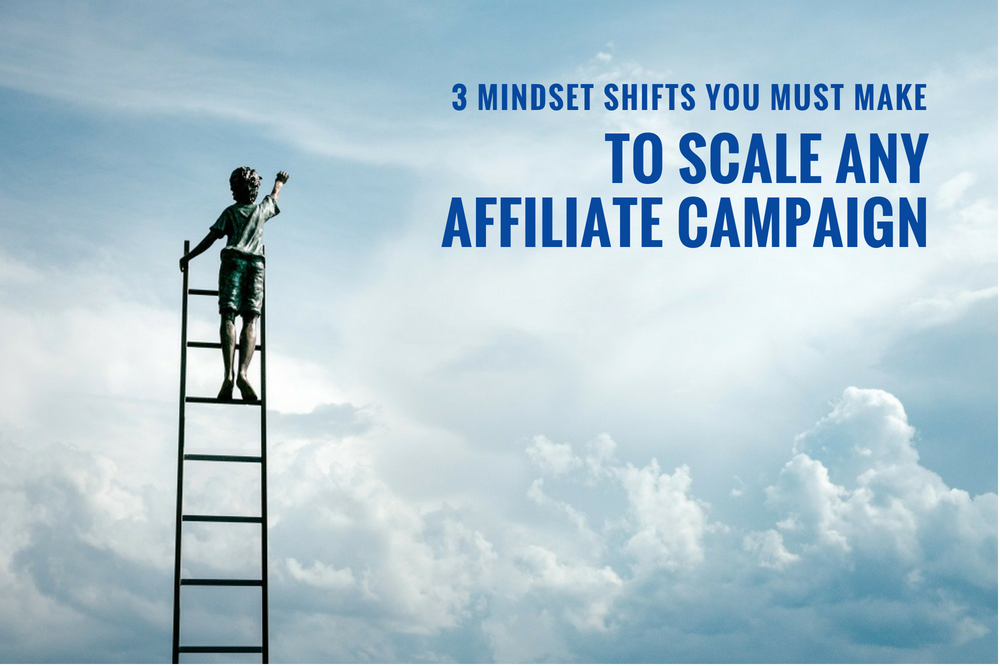

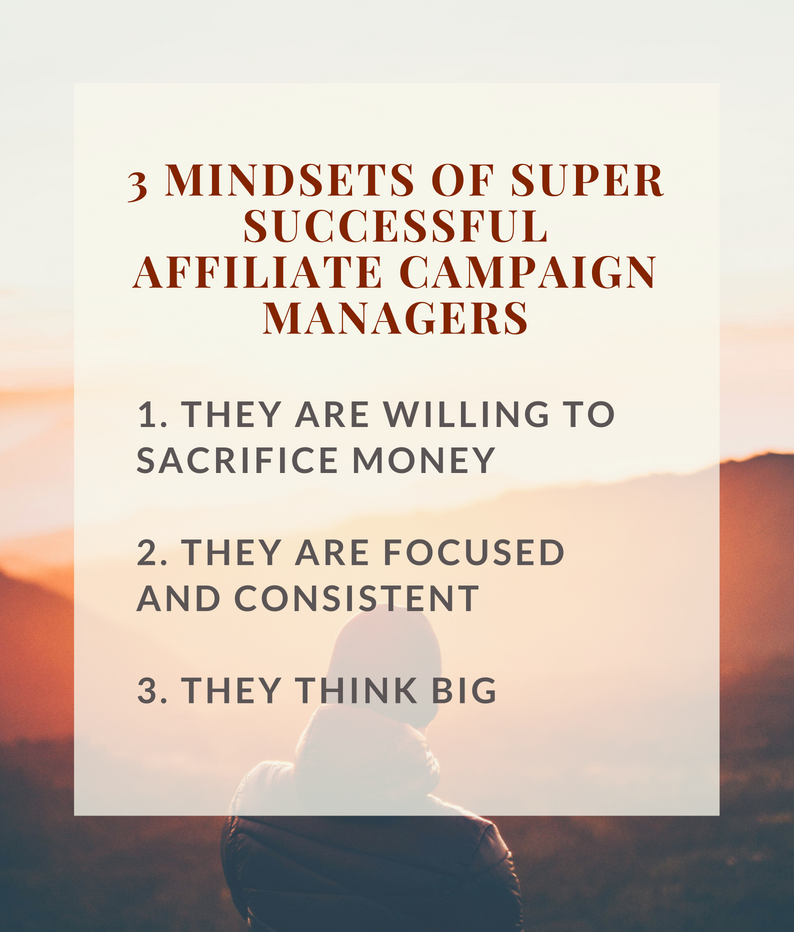


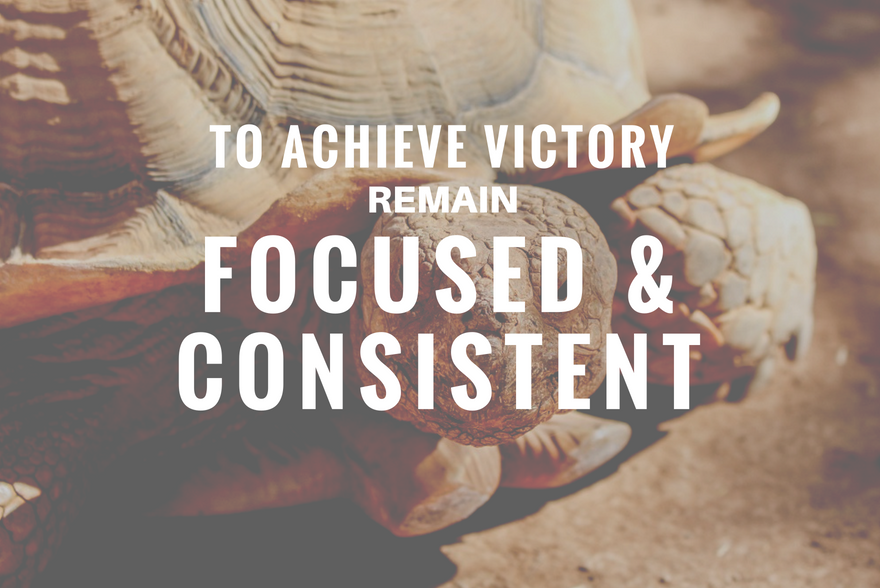

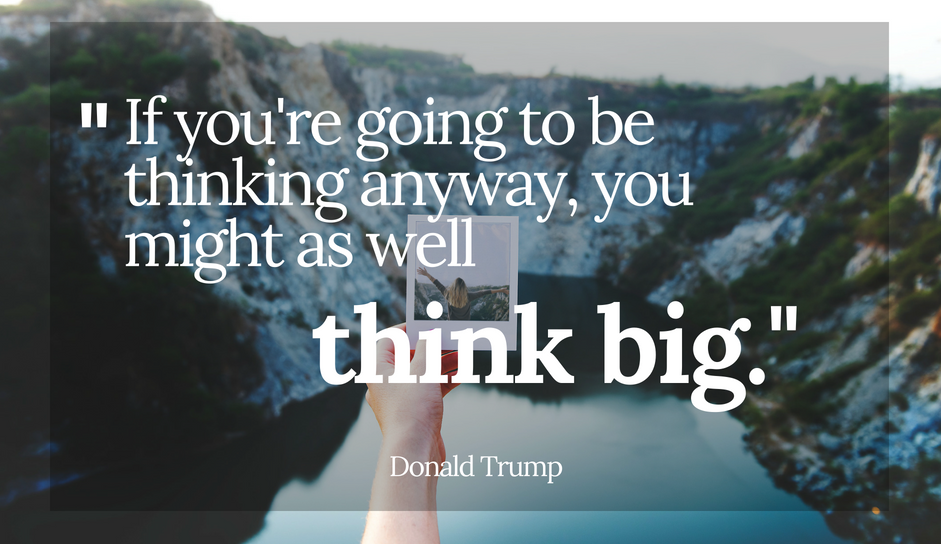
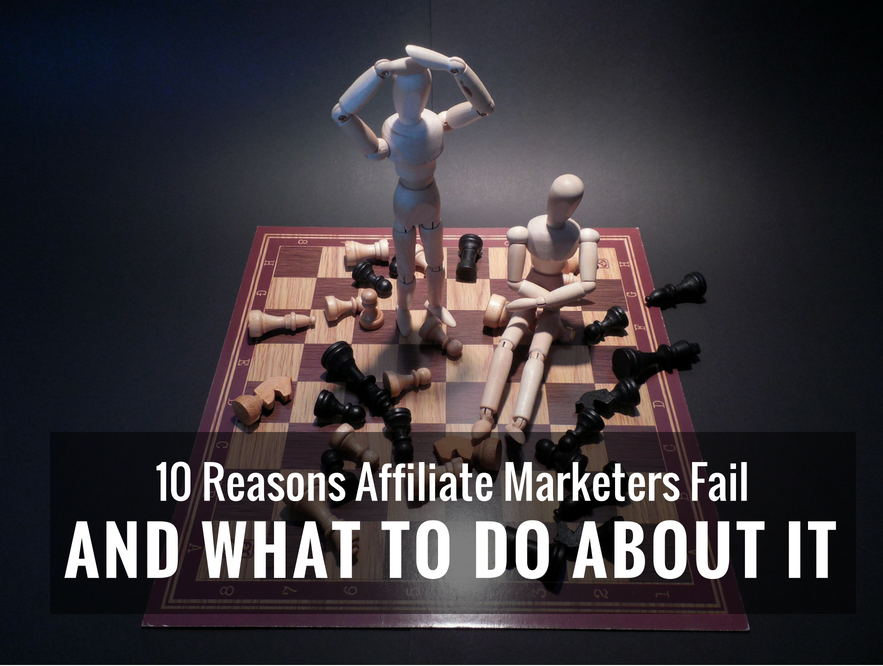
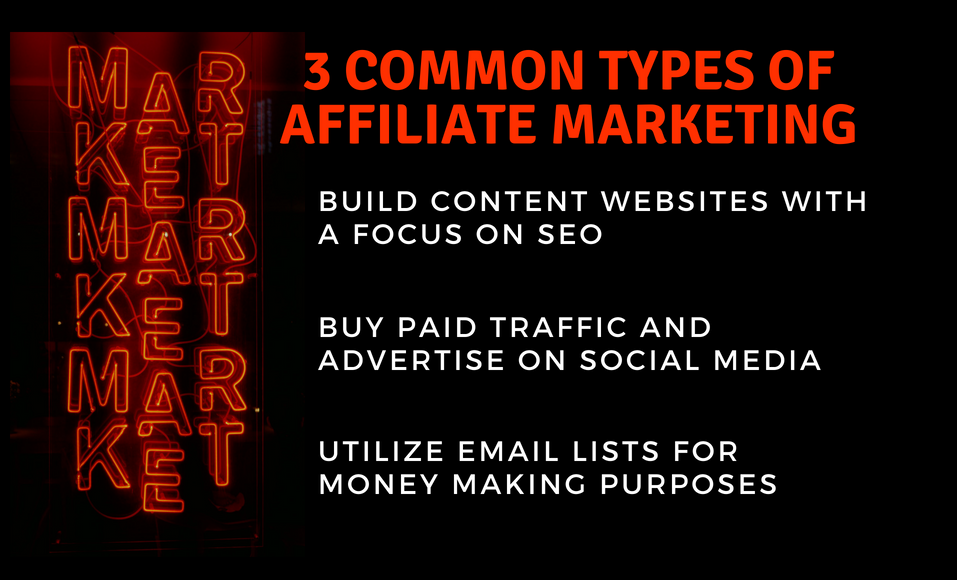




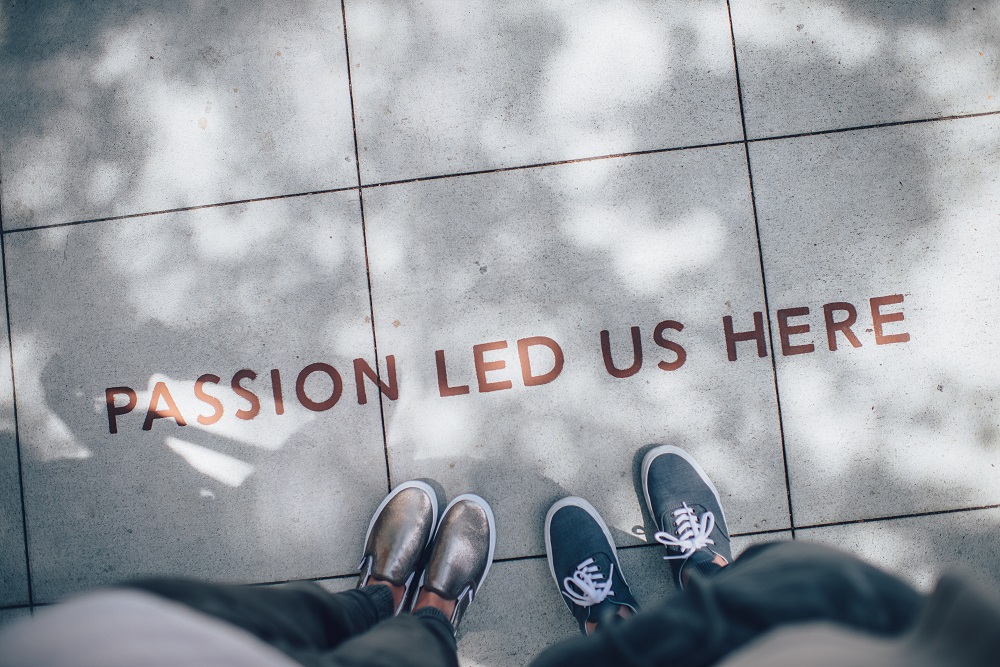

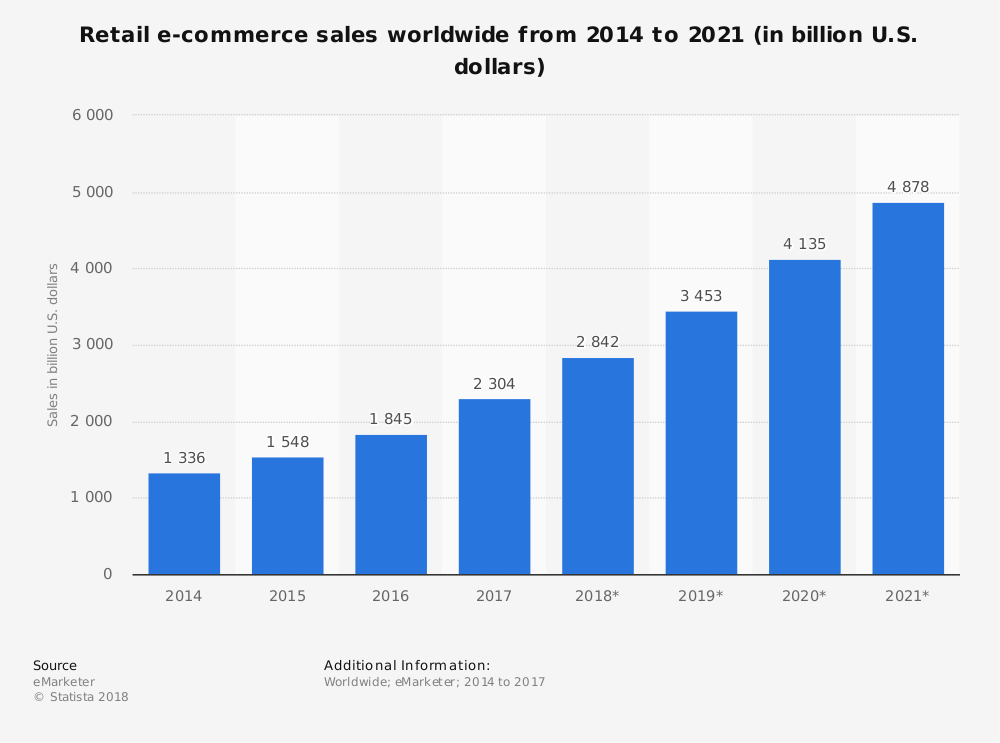


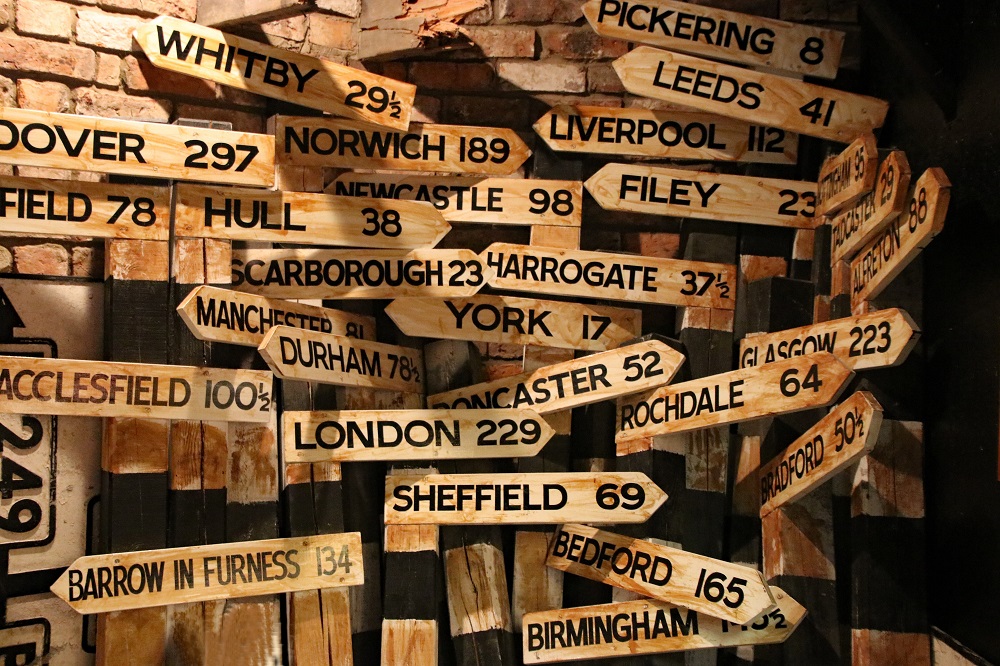

 Here are two effective ways to spark excitement back into your business:
Here are two effective ways to spark excitement back into your business:







